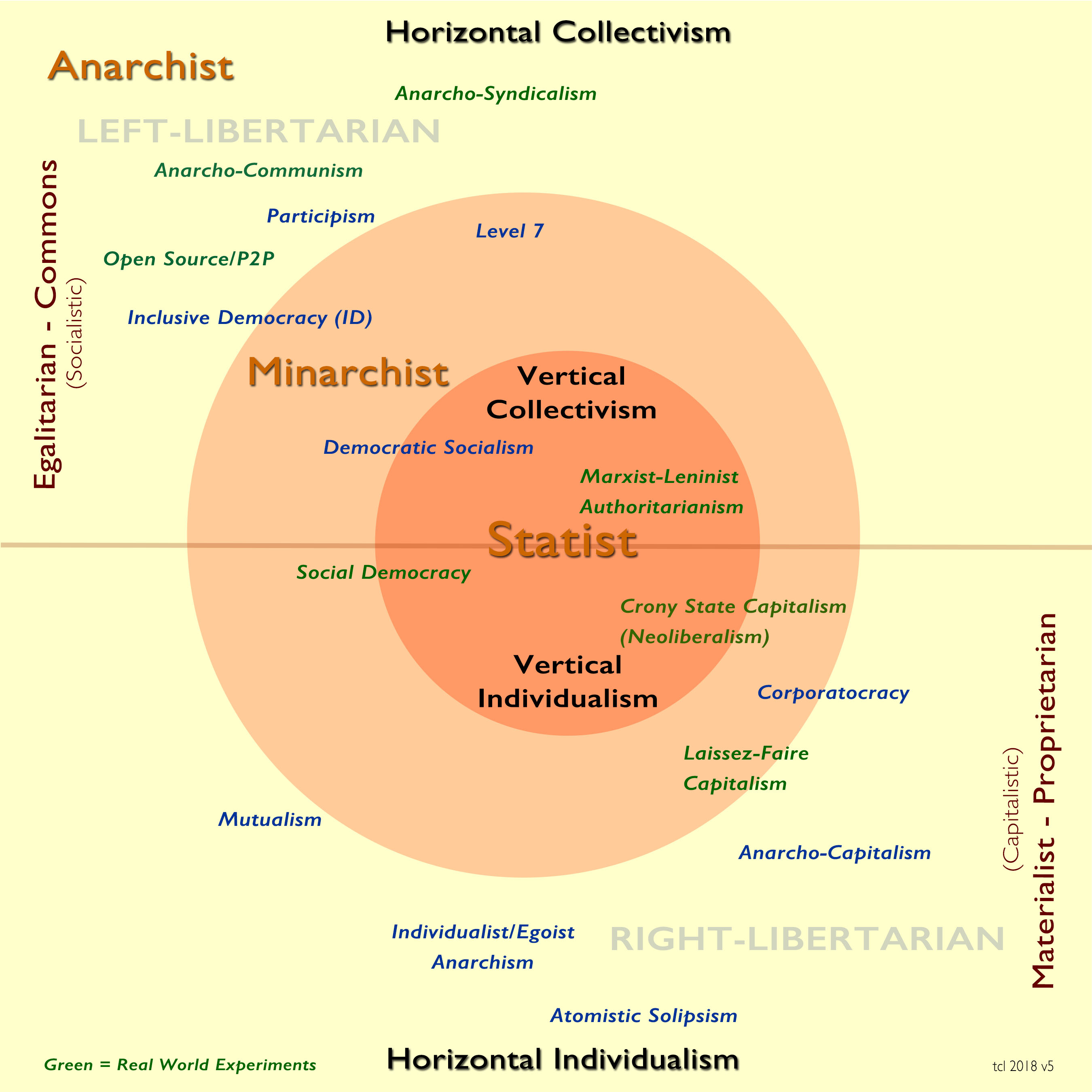Thanks for the question Samuel.
Libertarian socialism is an incredibly diverse container for many, many different approaches to political economy (see
Libertarian socialism). It's a really quite a vast spectrum. So to generalize about it in any way is to basically say something like "All people who drive Volkswagons..." yada yada yada. It's kind of pointless.
That said, since I self-identify as a libertarian socialist, I'm happy to answer for myself. However, I'd like to reiterate that I can't answer (at least not definitively) for anyone else - even people I agree with. For example Noam Chomsky is a libertarian socialist, but his thinking seems firmly grounded in anarcho-syndicalism. Personally, I don't think that's a viable approach, and even though I agree with Chomsky on many things, this is one area where we would disagree.
So how would I get from where we are now to my own libertarian socialist model? To understand my proposal fully, you would have to visit my website,
www.level-7.org, or read my other writing on this topic:
http://www.tcollinslogan.com/resources/IntegralLiberty.pdf and other essays at
www.tcollinslogan.com
and my book,
Political Economy and the Unitive Principle : T.Collins Logan : Free Download & Streaming : Internet Archive
Since those are lengthy reads, however, I'll try to summarize the essence of my nonviolent proposals:
1) Encourage people to mature morally and socially so that they become increasingly motivated by mutual compassion rather than egoic self-interest. There are many ways to do this, but one is to simply educate people on how humans evolved prosocial survival traits in the first place via group selection. Another is to lay bare the fallacy of individualism as an invention of philosophers, and one that isn't grounded in empirical evidence.
2) Help people realize that private property ownership actually annihilates freedom in profoundly oppressive ways, and then illustrate the success of common or collective ownership models as the most viable, liberty-enhancing alternatives.
3) In conjunction with increasing moral edification and philosophical education, advocate for more and more democracy so that power truly rests with the people - ideally in polycentric governance that integrates consensus, direct and representative (technocratic) democracy on multiple levels.
4) Establish a basic infrastructure and essential services civic backbone that uses centralized standards and coordination, but relies on the principle of subsidiarity for decision-making, standards adoption, boundary integrations and self-management.
No violence there. Just education, democracy, proven models of distributed management (Ostrom's CPRM, etc.) and a willingness to let go of antiquated notions that have served plutocratic capitalism quite well while they have pulled the wool over the eyes of workers, consumers and citizens. And please note that there is no central State involved in my model - at least not what you would traditionally think of as a State, and certainly not a police State. This is a highly distributed model of political economy.
Again for more depth you'll need to slog through my writing. Apologies for that. But the only "violence" that I advocate in any of my writing (with respect to a necessary revolution) is the disruption of the status quo through things like community activism, nonviolent resistance, art activism, non-lethal hacktivism, and other forms of civic engagement. In other words, nothing that violates the essence of the non-aggression principle, which I believe will be essential to creating a better system than the one that oppresses us now.
My 2 cents.
Comment by Ed Johnson: "So education, against human nature, is the answer. Eventually, ‘re-education’ a la Mao. “No violence there”, of course."
Says who? All of the most current research (over the past decade) regarding prosocial traits (generosity, cooperation, self-sacrifice, etc.) is that prosociality is hard-wired into humans, and has been for millenia. In fact, across most fields of study (anthropology, sociology, psychology, genetics, biology, etc.), there is unified agreement that prosocial traits are what allowed humans to survive into modern times. It was only the advent of certain “engineered” social structures, in certain parts of the world, that began to undermine that prosociality and replace it with other cultural expectations — and this happened selectively throughout history, and more uniformly only recently (well into the 2nd Millennium CE). Here’s a link to a decent article about some of the underlying research…I have many more if you are interested:
Scientists Probe Human Nature--and Discover We Are Good, After All


